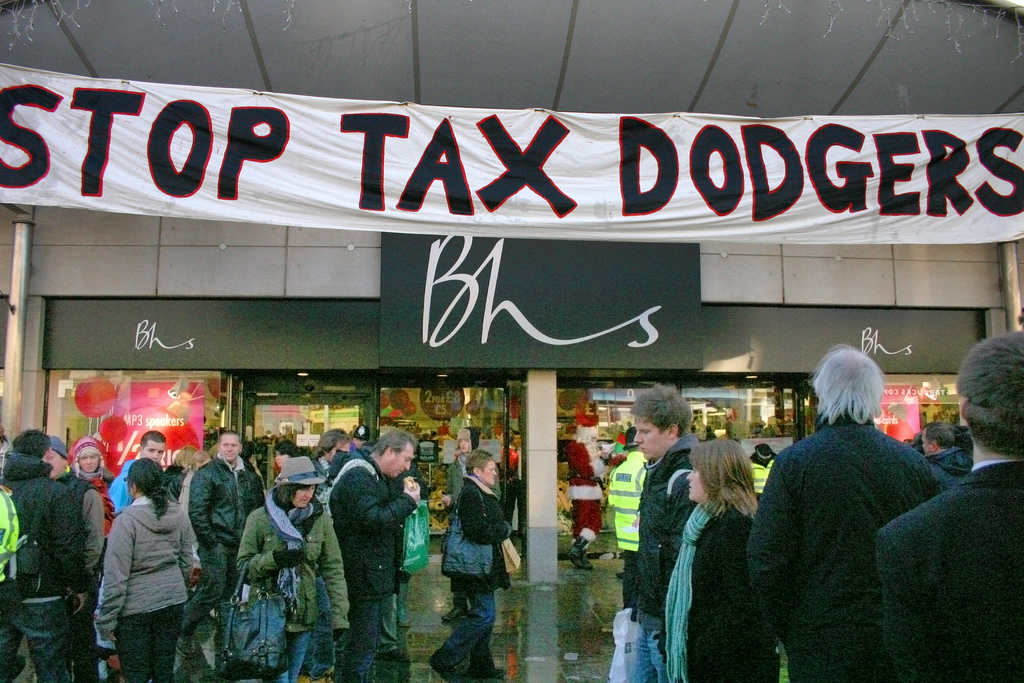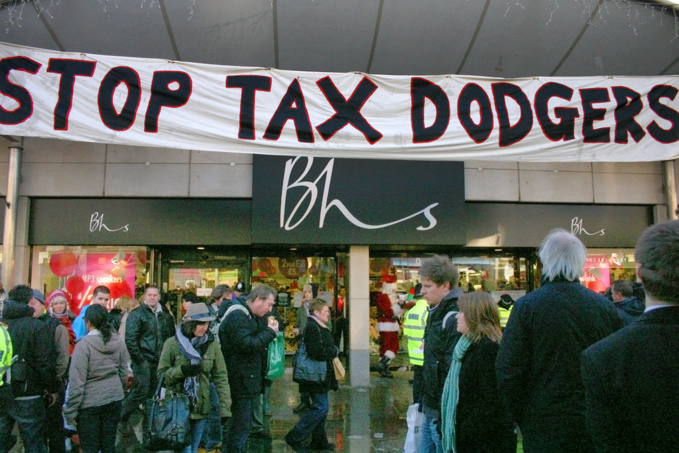This week, the European Commission (EC)competition authority demanded that Apple pays tax of 13 billion euros ($ 14.5 billion) in Ireland. Report of the European Commission states that Ireland has allowed the company to pay income taxes at an effective rate of 1%. This presumably was done to create favorable conditions for Apple in exchange for jobs for locals.
Irish Finance Minister Michael Noonan said that his country fundamentally disagrees with the European Commission’s decision on Apple’s tax issue. According to him, the company has fully paid taxes, and had no financial assistance from the government. Noonan promised to get permission from the Cabinet to appeal to European courts on the European Commission's decision.
Apple also raised objections, noting in a statement that the Commission made an attempt to rewrite company’s European history, ignored the Irish tax legislation, and overturned the international tax system. The tech giant is going to appeal, and is confident that this decision will be reversed.
Yet, litigation normally takes many years. As it goes, Apple’s activities may be noticed in other countries. In all events, Margrethe Vestager’s policy states that governments of other European countries may require a portion of the 13 billion euros ($ 14.5 billion) fine, imposed by Apple for tax evasion in Europe.
Vestager is encouraging other countries to conduct an audit of other high-tech companies. Thus, France has already started checking Alphabet Inc. for uncollected taxes. Alphabet, of course, claims that all has been paid in full.
Amazon has an office in Luxembourg and Ireland, and it looks like it is coming up next. Jeff Bezos’ company is suspected in siphoning off all European revenues through the Luxembourg office. The European Commission considered that, as in the case with Apple in Ireland, the Luxembourg authorities offered special conditions to the company. Amazon denies the allegation.
Many US multinational companies carefully select locations in Europe in order to minimize taxes. They are richer than any man, and countries compete with each other to attract them. Individual countries seek to lower corporate taxes, but when someone does it, others have no choice but follow the bad example.
An excellent example is the United Kingdom after the Brexit vote. Then, Finance Minister George Osborne said he would reduce the corporate tax by 5% (from 20% to 15%), in order to show UK's openness to investment. It seems that he was worried that, once the EU is out of the large block, London will be forced to make concessions to multinational corporations.
That said, is it really important to knock taxes out from corporations? After all, they create jobs and still give away some part of their income. How an ordinary citizen can benefit from this giant figures pronounced by the EC authorities?
Scale of potentially available resources is huge. Quick study of tax havens in 2009 shows that individuals derive from taxation $ 800 billion to $ 1 trillion annually. As for corporations, the figure is many times greater. This money would help pave many old roads, build schools and hospitals, subsidize social programs for those who are barely making ends meet. The benefit is obvious. Own short-term interests must not obscure long-term interests, aimed at the public good.
source: ft.com, cnn.com
Irish Finance Minister Michael Noonan said that his country fundamentally disagrees with the European Commission’s decision on Apple’s tax issue. According to him, the company has fully paid taxes, and had no financial assistance from the government. Noonan promised to get permission from the Cabinet to appeal to European courts on the European Commission's decision.
Apple also raised objections, noting in a statement that the Commission made an attempt to rewrite company’s European history, ignored the Irish tax legislation, and overturned the international tax system. The tech giant is going to appeal, and is confident that this decision will be reversed.
Yet, litigation normally takes many years. As it goes, Apple’s activities may be noticed in other countries. In all events, Margrethe Vestager’s policy states that governments of other European countries may require a portion of the 13 billion euros ($ 14.5 billion) fine, imposed by Apple for tax evasion in Europe.
Vestager is encouraging other countries to conduct an audit of other high-tech companies. Thus, France has already started checking Alphabet Inc. for uncollected taxes. Alphabet, of course, claims that all has been paid in full.
Amazon has an office in Luxembourg and Ireland, and it looks like it is coming up next. Jeff Bezos’ company is suspected in siphoning off all European revenues through the Luxembourg office. The European Commission considered that, as in the case with Apple in Ireland, the Luxembourg authorities offered special conditions to the company. Amazon denies the allegation.
Many US multinational companies carefully select locations in Europe in order to minimize taxes. They are richer than any man, and countries compete with each other to attract them. Individual countries seek to lower corporate taxes, but when someone does it, others have no choice but follow the bad example.
An excellent example is the United Kingdom after the Brexit vote. Then, Finance Minister George Osborne said he would reduce the corporate tax by 5% (from 20% to 15%), in order to show UK's openness to investment. It seems that he was worried that, once the EU is out of the large block, London will be forced to make concessions to multinational corporations.
That said, is it really important to knock taxes out from corporations? After all, they create jobs and still give away some part of their income. How an ordinary citizen can benefit from this giant figures pronounced by the EC authorities?
Scale of potentially available resources is huge. Quick study of tax havens in 2009 shows that individuals derive from taxation $ 800 billion to $ 1 trillion annually. As for corporations, the figure is many times greater. This money would help pave many old roads, build schools and hospitals, subsidize social programs for those who are barely making ends meet. The benefit is obvious. Own short-term interests must not obscure long-term interests, aimed at the public good.
source: ft.com, cnn.com


















